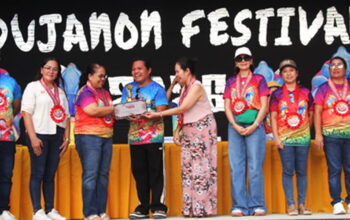
WITH many expat communities that have been subsisting on imported processed meat, these naturalized foreigners have one less worry, despite the continued struggle to keep the ban on pork and pork products coming from or passing through African Swine Fever (ASF) affected areas, in effect.
The expat community started to worry about their imported meat consumption when, the nearest and biggest international transshipment port is in Cebu International Container Port, which unfortunately is already affected by the viral hog disease.
IN paragraph 1, section 3 of the Provincial Ordinance No 2022-011, it stated that it us unlawful by any person to transport, carry, possess or import live pig, pork, pork products, frozen swine semen, swine feeds, processed porcine animal proteins in whatever quantity coming from or passing through ASF affected areas, into Bohol.
By the time the ordinance was issued in September 22, 2022, Cebu was still ASF-free, but the Department of Agriculture tagged the Central Visayan commercial and trade hub when a case was confirmed in south of the island.
From then on, Bohol issued a total ban on live pigs, pork, pork products and frozen swine semen from Cebu, in yet another measure to insulate Bohol and its 4 billion hog industry from the fatall and economically sabotaging disease.
Initially, the governor issued Executive Order No 11, series of 2023, which regulated the entry of imported pork meat, and allowing the entry into Bohol imported meat passing through Cebu, as long as the proper protocols are followed.
The Bohol protocol says that imported mean can get to Bohol even if from ASF-affected Cebu, as long as the boxes and packages are opened only in a National Meat Inspection Services accredited cold-storage facilities in the province of Bohol.
However, with the bulk of the imported products for the VIsayas, the usual practice is for the authorities in Cebu to open the crates and boxes and from there, leave it to the shippers where these products are to be delivered.
In fact, as a national policy, imported meat contained in refrigerated vans have to be opened at the port of call, before transferring them to cold-storage facilities.
This, Bohol ASF Task thinks there is so much of a risk in the cold chain management for these imported pork products especially when it is opened in Cebu.
Bohol ASF inter-agency task force members also argued that without any international container port in Bohol, the fate of the imported meat requirements for the expat communities might be a problem.
With this, through Executive Order No 13, series of 2023, Governor Erico Aristotle Aumentado, who heads the Bohol ASF Task Force, has said that Bohol can accept the entry of imported pork meat products as long as the port of entry is an international transshipment port which remains free from ASF, ASF Protected, surveillance and Buffer zones.
Imported meat coming from international shipment ports of Palawan, Mindoro Occidental, Mindoro Oriental, Negros Oriental, Negros Occidental and Siquijor are free to come in.
Imported meat can also come from provinces, cities and municipalities in Luzon, Eastern Visayas, and Mindanao reclassified and upgraded into Green Zones (Free), Light green Zones (Protected), Yellow zones (Surveillance), Pink Zones (Buffer) as classified by the Bureau of Animal Industry in their latest ASF Zoning status.
Moreover, EO 13 also makes sure that imported pork meat is accompanied by proper documentation: has certificate of Meat Inspection of Imported Meat and Meat Products for Domestic Transport issued by the NMIS; NMIS Meat Inspectors certification that the imported pork meat was stored in boxes and that these were not opened; certification from the Cold Chain Facility Operator stating that the stored imported meat in boxes were not stored together with local pork meat products; Certificate of Registration of Meat Transport Vehicle; Certificate of Acceptance from the Provincial Veterinarian of Bohol and proper Shipping Permits. (rahc/PIA_7/Bohol)


